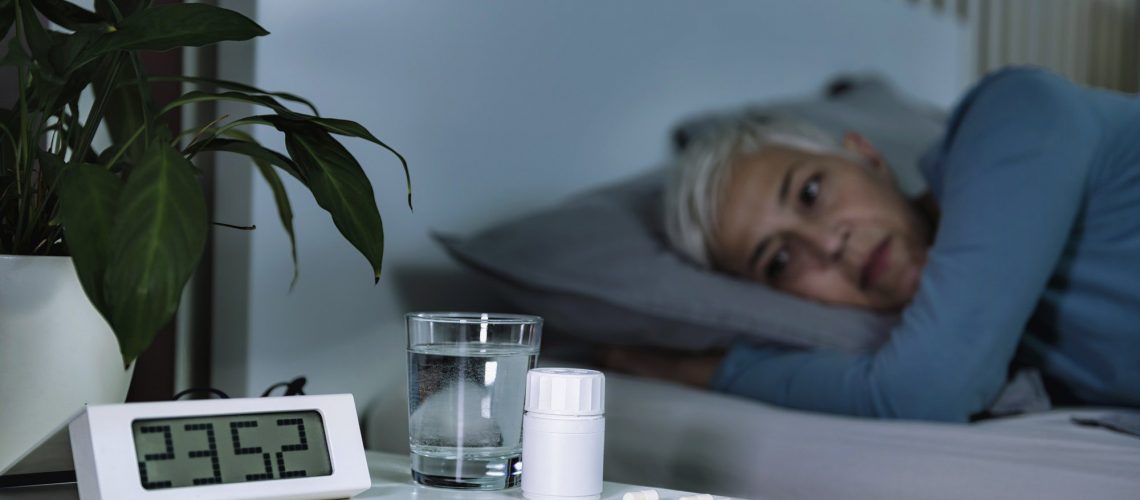Medicare and Insomnia – Insomnia is one of the most common sleeping disorders and we all know that regular sleep is very important to stay healthy, especially for the elderly. However, experts recommend that older people must have at least seven to nine hours of good night’s sleep. If you have trouble sleeping there could be several effects on your body caused by it.
Some of the effects could be:
- Memory issues: lack of sleep can affect short and long-term memory
- Behavioral changes: it can lead to anxiety and depression
- Possible diabetes: it can affect your body to release insulin which can lead to diabetes type 2
- Can affect your immunity: increases the risk of getting common viruses like cold and flu
- High blood pressure
- Risk of developing a heart disease
- Weight gain
If you have a sleeping disorder there are services covered by Medicare that can help you resolve your sleep deprivation.
What sleeping disorders does Medicare cover?
Sleep studies are helping doctors to diagnose your condition. Original Medicare (Part A and Part B) covers sleeping studies if your doctor thinks they are medically necessary. For example, if you are showing some signs of sleep apnea and your doctor says you need to do sleep studies some of the cost can be covered under Original Medicare.
Medicare Part B will cover Type I, II, III, and IV sleep tests only if you show clinical signs of sleep apnea.
However, Medicare doesn’t cover sleep studies for obstructive insomnia.
Types of Sleep Studies
There are four types of sleep studies that may be covered under Medicare part B if you show clinical signs of sleep apnea.
-
- PSG Test (Polysomnogram): it is also known as Type I so this test determines if you have sleep apnea or not. During this test, you are hooked up to electrodes that are monitoring your sleep and body functions like brain waves, heart rate, and breathing.
- MSLT (Diagnostic Daytime Multiple Sleep Latency Test): This test is usually performed the morning after you get your results from the PSG Test. It measures your sleeping habits during the day and how fast and often you are entering into your REM sleep
- CPAP Titration (Continuous Positive Airway Pressure): during this study physician monitors patients breathing and CPAP pressure. The patient has a nasal mask whilst measuring their breathing, heart rates, and levels of oxygen. CPAP pressure can be changeable over the night if needed.
- MWT (Maintenance of Wakefulness Test): This test is used to determine if previous CPAP therapy or other treatment was successful and to measure the patient’s ability to stay awake in situations that may raise safety concerns.
- HST (Home Sleep Test): this is the test you can do at home by yourself. During this study, you will be connected to a monitor whilst sleeping in your bed at night time. The monitor measures most things like the PSG test. There are Type II, III, and IV devices for home sleep tests.
Costs of Medicare coverage for sleep studies
Medicare (Part B) will cover the PSG Test only if the study is performed in a certified facility. It also may cover Type II, III, and IV devices that may be needed for your Home SleepTest. However, this only falls under Medicare coverage if it is medically necessary and your doctor thinks you may have symptoms of clinical sleep apnea.
Furthermore, Medicare can also cover a three-month trial of CPAP therapy with all included necessary devices if you are medically diagnosed with chronic sleep apnea. Still, after a three-month trial period, Medicare can continue coverage for this therapy if your medical record shows that treatment is helping you.
Nevertheless, if you had a CPAP machine before you enrolled in Original Medicare and you have one now, Part B may cover for rental or replacement of your machine if needed.
However, you will need to pay some additional costs. You’ll need to pay 20% of the Medicare- Approved- Amount for the machine rental and supplies after you meet the Part B deductible. Still, Medicare will pay for your CPAP machine if you are using it for 13 months without interruption and after this time machine will be yours.
It is important to know that Medicare pays just for your DME (durable medical equipment) if doctors and suppliers accept the terms of Medicare and are enrolled in it. If the supplier does not accept the terms you may be chargers with the full cost of the equipment including the Medicare share of the cost. Also, if you have a Medicare Supplement Plan (Medigap) it can cover 20% of the coverage left by Original Medicare.
Medicare coverage requirements for sleep studies and equipment can be complicated so the best option for you is to talk to our licensed Medicare agent in Better Insurance Group.
Find your local Medicare Agent in Florida here!
Call us today (863-213-0513) and we will help you to find out which provider accepts Medicare and what test options would be best for you!

